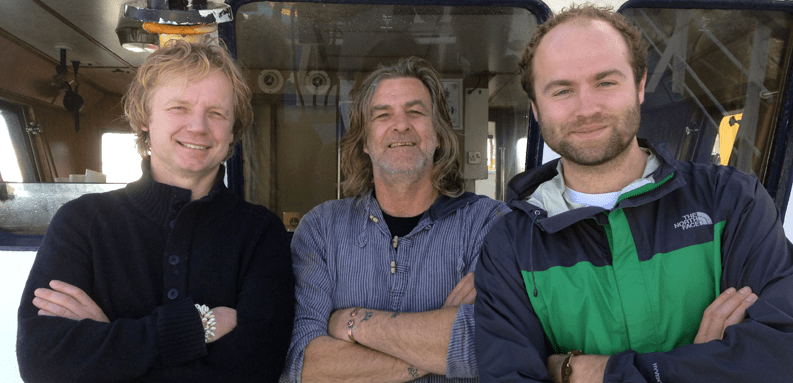When asked to write a Christmas blog post, George Clark initially struggled to think of a theme that related both to the work of the MSC and the festive season. In the end, it was actually quite simple.
The MSC has been setting standards for sustainable fishing for over 15 years now. Fisheries can verify that they operate sustainably, and consumers can choose their fish and seafood on that basis.
So I thought let’s link Christmas to the ‘principle product’ of our work: labelled, certified fish to eat. Though I work in the UK where fish isn’t traditionally part of the Christmas menu, many countries do celebrate with seafood delicacies. If we take a more international view, there are plenty of fantastic and Christmassy fish products available with the MSC ecolabel: smoked salmon, lobster, caviar, herring, the list goes on…
A trip to Cornwall with Bart van Olphen
Another link between the MSC and Christmas came to me on a trip to Cornwall earlier this year. I was showing Dutch chef Bart van Olphen around Newlyn and its MSC certified hake and sardine fisheries.
The products that come out of this fishery are manufactured in The Pilchard Works, a local tinning company. Like a lot of tinned fish products they’re carefully designed, they’re colourful and beautifully wrapped. Many other canned fish products are also wrapped in paper, not unlike Christmas presents.
A sustainable Christmas
So, I did some research into how many ‘MSC presents’ will be on the shelves this year. After a bit of digging, I found out that there are 3,666 MSC certified preserved products on the market globally. This equates to 318,095,226 MSC ‘presents’ sold worldwide last year.
If Santa was asked to give an ‘MSC present’ to as many people as possible he could deliver enough for every single person in Sweden, Vietnam, Uruguay, Nepal, France, Malaysia, South Africa, Taiwan and Hungary.
Visiting these fisheries and understanding how they achieve their MSC status is fantastic to see, but witnessing how these fish then enter the supply chain and reach consumers helps to cement the cause and purpose of the MSC, in achieving its mission.
I like the fact that you can equate sustainably managed fisheries to something as simple as a can of sardines and then demonstrate how much reach and relevance it is having in the global food supply chain.
It’s these kind of stats and context, that always makes me realise that what we do at the MSC is actually making a difference. The programme really works and that’s immensely satisfying.
Waking up and going to work knowing that I am part of this positive solution is a present in itself, although I wouldn’t turn down a can of Cornish sardines either…

